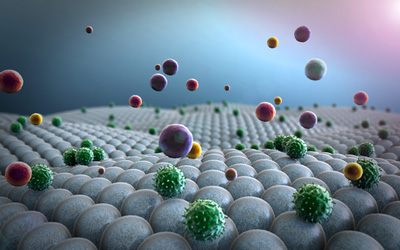Researchers use key mechanism to treat autoimmune diseases
Posted: 19 February 2016 | Victoria White | No comments yet
The discovery could change the way researchers understand and treat autoimmune diseases such as type 1 diabetes and multiple sclerosis…


A new study from the University of Calgary could change the way researchers understand and treat autoimmune diseases such as type 1 diabetes, multiple sclerosis and rheumatoid arthritis.
Using animal models and human cells in animal models, have discovered a novel mechanism that stops the immune attack, and have developed a new class of drugs that harnesses this mechanism to treat various autoimmune diseases without compromising the entire immune system.
“This discovery is significant because we now know how to stop autoimmune diseases in a highly specific manner without compromising immunity in general,” says Dr Pere Santamaria, a professor in the Department of Microbiology, Immunology and Infectious Diseases, and member of the university’s Snyder Institute for Chronic Diseases.
Santamaria’s study shows that nanoparticles decorated with protein targets acting as ‘bait’ for disease-causing white blood cells can be used to reprogramme them to suppress the disease they intended to cause. This new class of nanomedicines, called Navacims, exploits a naturally occurring process that is wired into our immune system to protect us against autoimmune disease.
Santamaria has shown that this mechanism and the nanomedicines that exploit it can be applied to several, and potentially all, autoimmune diseases in animals, by simply changing the ‘bait’ on the nanoparticles. The study also shows that this mechanism operates in animals transplanted with human white blood cells, which essentially responded to the corresponding nanomedicines like their mouse counterparts.
In order to treat autoimmune diseases, most of the white blood cells directed against each of these targets need to be ‘taken out’; however, many remain unknown. Current drugs have no way of distinguishing ‘rogue’ white blood cells from normal ones and as a result, drugs used to treat these diseases also suppress normal immunity leaving the individual susceptible to other illnesses.
“Imagine if you wanted to stop a war,” says Santamaria. “You would probably want to take out the entire army, which is what current drugs try to do.” He notes that this new class of drugs deals with this problem from a completely different perspective “Rather than taking soldiers out, our drugs trick a single soldier into becoming the ‘traitor’ that takes out the army General.” He adds, “Without the General, the army ceases to operate and the war ends.”
Santamaria’s new drugs are currently being developed for the treatment of specific human autoimmune diseases by Parvus Therapeutics.
Related conditions
Diabetes, Multiple Sclerosis
Related organisations
University of Calgary



